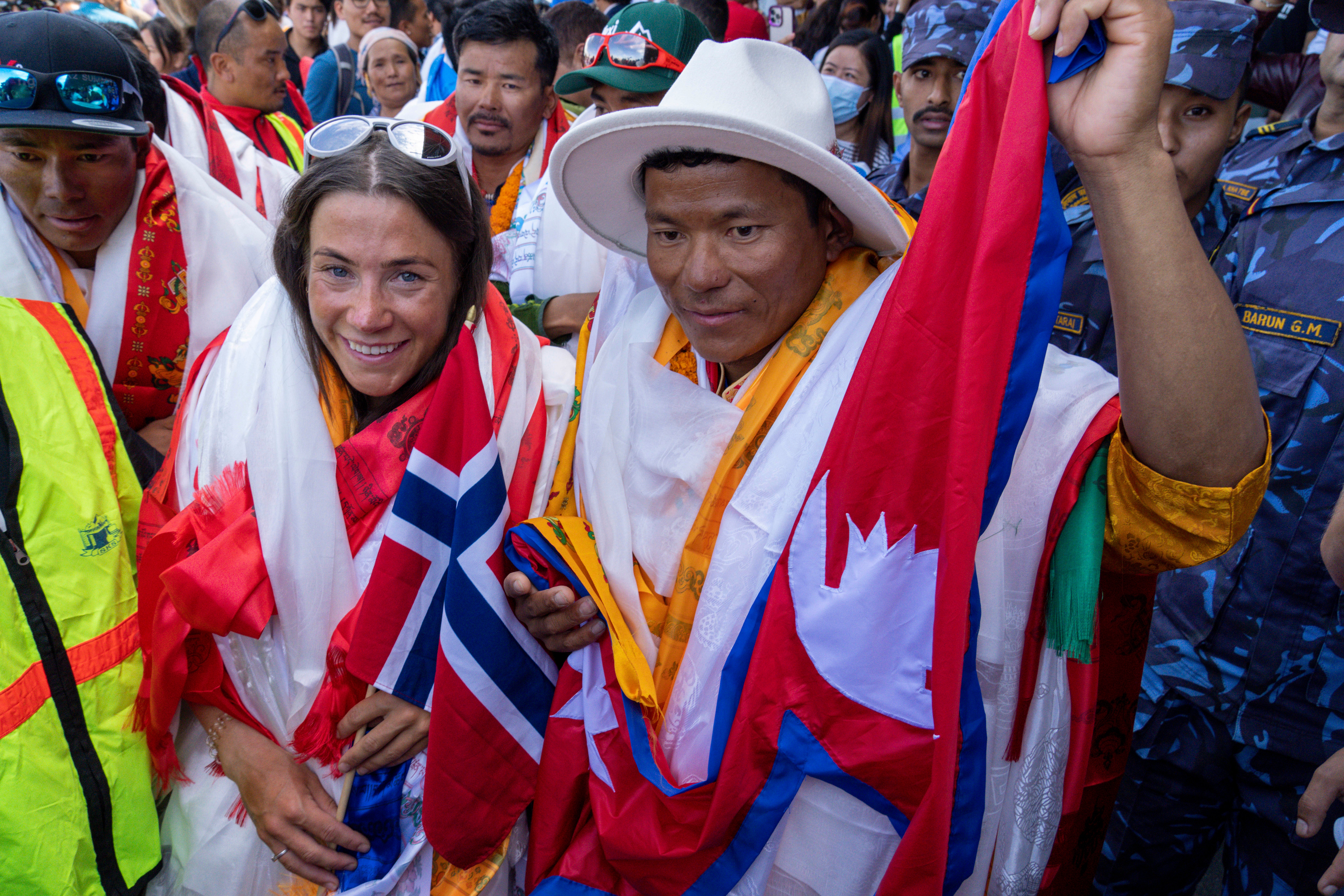Norwegian mountaineer denies climbing over dying porter on K2 after drone footage emerges
‘Given the conditions, it is hard to see how he could have been saved’, says record-breaking mountain-climber

Your support helps us to tell the story
From reproductive rights to climate change to Big Tech, The Independent is on the ground when the story is developing. Whether it's investigating the financials of Elon Musk's pro-Trump PAC or producing our latest documentary, 'The A Word', which shines a light on the American women fighting for reproductive rights, we know how important it is to parse out the facts from the messaging.
At such a critical moment in US history, we need reporters on the ground. Your donation allows us to keep sending journalists to speak to both sides of the story.
The Independent is trusted by Americans across the entire political spectrum. And unlike many other quality news outlets, we choose not to lock Americans out of our reporting and analysis with paywalls. We believe quality journalism should be available to everyone, paid for by those who can afford it.
Your support makes all the difference.A top Norwegian mountaineer has denied claims that her team climbed over a dying porter to reach the top of K2 in their efforts to secure a new world record.
Kristin Harila and her team have been criticised for allegedly climbing past an injured Pakistani porter, Mohammed Hassan, who fell off a sheer edge at a height of about 8,200 metres.
Ms Harila scaled the world's second-highest peak on 27 July along with her Nepali porter, Tenjen (Lama) Sherpa, to become the world's fastest climber to summit all peaks above 8,000 metres.
Seated in the Karakoram range in Pakistan’s Gilgit-Baltistan, K2 is also known as “Savage Mountain” and is said to be the deadliest of all the major summits.
Drone footage purports to show climbers walking past Hassan on a ridge at the top of the area known as the bottleneck, during Ms Harila's ascent.
Wilhelm Steindl and Philip Flamig, an Austrian climbing duo who were also on K2 that day, said footage they recorded using a drone showed climbers walking over Hassan's body instead of helping him.
Ms Harila has denied the allegations, insisting that her team did everything they could to save the man.
Mr Flamig told Austria’s Standard newspaper that he was "treated by one person while everyone else was pushing towards the summit". "The fact is that there was no organised rescue operation although there were Sherpas and mountain guides on site who could have taken action," he added.
Mr Steindl said that the man was treated like "a second-class human being" and "such a thing would be unthinkable in the Alps".
“If he had been a Westerner, he would have been rescued immediately,” he added. “No one felt responsible for him. What happened there is a disgrace. A living human was left lying so that records could be set.”

Refuting the allegations, Ms Harila told The Telegraph that the team tried “to lift him back up for an hour and a half and my cameraman stayed on for another hour to look after him”.
“At no point was he left alone.
“Given the conditions, it is hard to see how he could have been saved. He fell on what is probably the most dangerous part of the mountain where the chances of carrying someone off were limited by the narrow trail and poor snow conditions.”
She added that Hassan was not wearing either gloves or a down jacket and did not appear to have been given oxygen.
The Independent approached Ms Harila for comment.
Following the incident, Mr Steindl visited the porter’s family after descending the mountain. According to him, Hassan took the perilous job of rope fixer in order to pay for his diabetic mother’s medical bills.
“His family cannot afford medicine or food. Ms Harila and many of the climbers flew over us and the family in helicopters. What a symbolic image. The helicopter to fly out costs up to $12,000 per person,” he said.
K2 is considered more dangerous than Mount Everest, where the ratio of deaths to ascents is one in 34.



Join our commenting forum
Join thought-provoking conversations, follow other Independent readers and see their replies
Comments